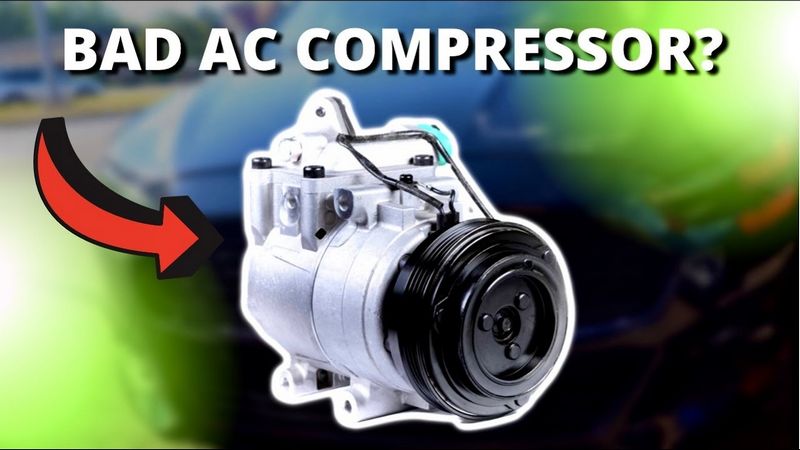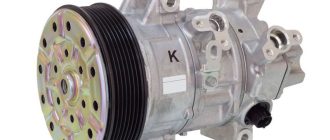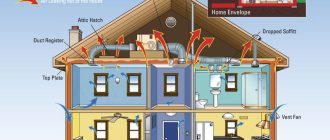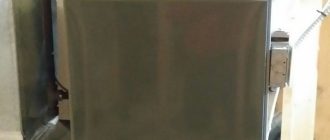
How long will a failing AC compressor last?
Have you noticed that your air conditioning system is not functioning as it should? If so, it’s possible that the AC compressor is failing. The AC compressor is a critical component of your cooling system, responsible for compressing the refrigerant and circulating it through the system. When the compressor begins to fail, it can lead to a variety of problems that affect the overall performance of your AC unit.
So, how long can you expect a failing AC compressor to last? Unfortunately, there is no one-size-fits-all answer to this question. The lifespan of a failing AC compressor can vary depending on several factors, such as the extent of the damage, the age of the compressor, and the maintenance history of your AC unit. In some cases, a failing AC compressor may continue to work for a short period before completely breaking down, while in others, it may gradually worsen over time.
It’s important to keep in mind that continuing to run your AC unit with a failing compressor can have serious consequences. Not only will the cooling performance be compromised, but it can also lead to further damage to other components of your air conditioning system. As such, it’s crucial to address any signs of a failing AC compressor as soon as possible to avoid more extensive and costly repairs.
How Long Can a Failing AC Compressor Last?
A failing AC compressor can last for a variable amount of time, depending on several factors. The lifespan of a failing AC compressor can range anywhere from a few days to several months.
The duration of the failing AC compressor largely depends on the severity of the problem and the usage of the air conditioning system. If the compressor is only slightly failing and the AC system is used sparingly, the compressor may continue to function for a longer period of time.
However, if the failing compressor is heavily strained due to continuous use or if the problem is severe, it may only last a short while before completely breaking down. In some cases, a failing compressor can lead to a catastrophic failure, resulting in the need for a complete replacement.
It is important to note that a failing AC compressor can put additional strain on other components of the air conditioning system, potentially causing further damage. Therefore, it is recommended to address any issues with the compressor as soon as possible to prevent further complications.
| – Severity of the problem |
| – Usage of the air conditioning system |
| – Strain on the compressor |
| – Other components of the AC system |
If you suspect that your AC compressor is failing, it is best to consult a professional HVAC technician who can accurately assess the situation and provide the necessary repairs or replacements. Delaying the resolution of compressor issues can lead to further damage and higher repair costs in the long run.
Factors Affecting the Lifespan of a Failing AC Compressor
When it comes to the lifespan of a failing AC compressor, there are several factors that can impact how long it will last. Understanding these factors can help you gauge when it might be time to replace your compressor.
Here are some key factors that can affect the lifespan of a failing AC compressor:
| Age of the Compressor | The older the compressor, the more likely it is to fail. AC compressors typically last anywhere from 10 to 15 years, but if your compressor is already failing, it may have a shorter lifespan. |
| Maintenance | Regular maintenance is crucial in ensuring the longevity of your AC compressor. Neglecting to clean or replace filters, check refrigerant levels, or lubricate moving parts can lead to increased wear and tear, shortening the lifespan of the compressor. |
| Usage and Climate | AC compressors that are used frequently or in extreme climates may have a shorter lifespan. Constant usage puts more strain on the compressor, while extreme heat or cold can cause additional stress on the system. |
| Installation Quality | The quality of the initial installation can impact the lifespan of the AC compressor. Improper installation, such as incorrect sizing or inadequate ductwork, can lead to increased strain on the compressor and ultimately shorten its lifespan. |
| Repair History | If your AC compressor has a history of frequent repairs or major issues, it may indicate an underlying problem that could shorten its lifespan. Regularly addressing and fixing issues can help prolong the compressor’s lifespan. |
Considering these factors can give you a better understanding of how long a failing AC compressor will last. If you notice any signs of compressor failure, such as unusual noises, poor cooling performance, or frequent cycling, it’s important to consult a professional to assess the situation and determine if it’s time for a replacement.
Signs of a Failing AC Compressor
If your AC compressor is failing, it is important to recognize the signs so that you can take the necessary steps to address the issue. Here are some common signs that indicate a failing AC compressor:
- Warm air blowing from the vents: One of the telltale signs of a failing AC compressor is when warm air is blowing from the vents instead of cool air. This indicates that the compressor is not effectively compressing the refrigerant to cool the air.
- Loud or strange noises: Another indication that your AC compressor is failing is if you hear loud or strange noises coming from the outdoor unit. This can include grinding, rattling, or clicking sounds, which may suggest internal damage or a loose component.
- Excessive vibration: If you notice excessive vibration coming from your AC unit, it could be a sign that the compressor is failing. This vibration is usually caused by a faulty compressor motor or imbalanced parts within the compressor.
- Frequent system cycling: A failing AC compressor may cause your system to cycle on and off more frequently than usual. This is because the compressor is struggling to maintain the desired temperature and pressure levels, leading to more frequent system cycles.
- Increase in energy bills: As the efficiency of your AC compressor decreases, your energy bills may start to rise. This is because a failing compressor requires more energy to operate and compensate for its reduced performance.
If you notice any of these signs, it is important to have your AC compressor inspected and repaired as soon as possible. Ignoring a failing compressor can lead to further damage and costly repairs in the long run.
The Dangers of Ignoring a Failing AC Compressor
Ignoring a failing AC compressor can lead to a number of problems that can compromise the comfort and safety of your home. Here are some of the dangers to consider:
- Decreased Air Quality: A failing AC compressor can result in poor air circulation, leading to stagnant air and a decrease in indoor air quality. This can lead to a buildup of allergens, dust, and other pollutants, which can trigger respiratory problems for you and your family.
- Increased Energy Costs: When an AC compressor is failing, it often works harder to cool your home, resulting in increased energy consumption. This can lead to higher monthly energy bills and unnecessary expenses.
- Potential Damage to Other AC Components: A failing compressor can put additional strain on other components of your AC system. This can increase the risk of damage to the condenser coil, evaporator coil, and other vital parts, leading to costly repairs or even premature system failure.
- Complete AC System Failure: If a failing AC compressor is left unaddressed for too long, it can eventually lead to a complete system breakdown. This can leave you without any cooling during hot summer months, resulting in discomfort and potential health hazards.
- Fire Hazard: In rare cases, a failing AC compressor can overheat and cause an electrical fire. This can pose serious safety risks to you, your family, and your property.
Given the potential risks associated with ignoring a failing AC compressor, it is important to address any issues as soon as possible. Regular maintenance and timely repairs can help prolong the lifespan of your AC system and ensure your comfort and safety.
How to Extend the Lifespan of a Failing AC Compressor
If you’re experiencing issues with a failing AC compressor, you may be wondering how to increase its lifespan. While a failing AC compressor won’t last forever, there are steps you can take to prolong its life and potentially avoid the need for immediate replacement.
1. Schedule regular maintenance: Regular maintenance is essential for any AC system, especially one with a failing compressor. By scheduling regular check-ups and inspections, you can catch any potential issues early and address them before they worsen.
2. Clean and replace air filters: Dirty or clogged air filters can strain your AC compressor and cause it to work harder, leading to potential damage. Regularly cleaning or replacing air filters can help improve the system’s airflow and reduce stress on the compressor.
3. Keep the compressor clean: Dust, dirt, and debris can accumulate on the compressor, hindering its performance and potentially causing it to overheat. Regularly clean the exterior of the compressor to remove any build-up and ensure proper airflow.
4. Avoid overworking the AC unit: Running the AC unit for extended periods without giving it a break can put unnecessary strain on the compressor. Try to give the unit some downtime by using fans or natural ventilation when the weather allows.
5. Maintain proper refrigerant levels: Low refrigerant levels can cause the AC compressor to work harder and eventually fail. Regularly check and maintain proper refrigerant levels to prevent unnecessary strain on the compressor.
6. Monitor for unusual sounds or performance: Pay attention to any strange sounds or changes in your AC system’s performance. Unusual noises or decreased cooling efficiency could be signs of a failing compressor. Address these issues promptly to prevent further damage.
7. Consult a professional: If you’re unsure about the condition of your AC compressor or need guidance on maintaining it, consult a professional HVAC technician. They can assess the situation and provide recommendations based on the specific circumstances of your compressor.
By following these tips, you can potentially extend the lifespan of a failing AC compressor and minimize the need for immediate replacement. However, it’s important to keep in mind that a failing compressor will eventually need to be replaced. If you’re unsure about the condition of your compressor, it’s always best to consult a professional for guidance.
When to Replace a Failing AC Compressor
How long will a failing AC compressor last? This is a common question for homeowners dealing with AC problems. While it’s difficult to determine an exact timeframe, it’s important to know when to replace a failing AC compressor to avoid any further damage and discomfort.
The lifespan of an AC compressor can vary depending on various factors such as usage, maintenance, and environmental conditions. However, once a compressor starts to fail, it’s usually a sign that it’s time for a replacement.
There are a few key indicators that can help you determine if your AC compressor is failing:
Noise: If your AC compressor is making unusual noises such as grinding, banging, or squealing sounds, it’s a clear sign of a problem. These noises can indicate issues with the bearings, pistons, or other internal components.
Poor cooling performance: If your AC system is no longer cooling your home as effectively as it used to, it could be due to a failing compressor. A compressor that is struggling to function properly will not be able to cool the air efficiently.
Reduced airflow: If you notice a decrease in the airflow coming from your AC vents, it could be a sign of a failing compressor. A compressor that is not working properly may not be able to push enough air through the system, resulting in reduced airflow.
Frequent cycling: If your AC system is constantly turning on and off, it could be a sign of a failing compressor. This is known as short cycling and can lead to increased energy consumption and reduced efficiency.
If you notice any of these signs, it’s important to address the issue promptly and replace the failing AC compressor. Continuing to run your AC system with a failing compressor can cause further damage to the system and potentially result in a complete breakdown.
It’s recommended to consult with a professional HVAC technician who can diagnose the problem and determine if a compressor replacement is necessary. They will be able to provide you with the best course of action based on the specific issues with your AC system.
Remember, a failing AC compressor should not be ignored. By addressing the problem in a timely manner, you can ensure the longevity and efficiency of your AC system and maintain a comfortable indoor environment.
Common Causes of AC Compressor Failure
The AC compressor is an essential component of your air conditioning system, responsible for compressing and circulating refrigerant to cool the air in your home. However, over time, the AC compressor may start to fail due to various reasons.
1. Lack of maintenance: Regular maintenance is crucial for the proper functioning and longevity of your AC compressor. Failure to clean or replace air filters, as well as neglecting routine inspections and maintenance, can lead to compressor failure.
2. Low refrigerant levels: Insufficient refrigerant levels can cause the AC compressor to work harder, leading to strain and potential failure. Refrigerant leaks can result from a variety of issues, such as damaged coils or fittings.
3. Electrical problems: Faulty electrical connections, damaged wiring, or power surges can overload the AC compressor and cause it to fail. It is essential to have a qualified technician inspect and repair any electrical issues promptly.
4. Contaminated refrigerant: If foreign particles, moisture, or debris enter the AC system, it can contaminate the refrigerant. This contamination can cause damage to the compressor, leading to failure over time.
5. Age and wear: Like any mechanical component, the AC compressor has a lifespan. With regular use, the compressor may experience wear and tear, reducing its efficiency and eventually causing failure. The lifespan of a failing AC compressor can vary, but it is generally recommended to replace it if it is more than 10-15 years old.
6. Improper installation: Incorrect installation can lead to a host of problems, including compressor failure. It is crucial to hire a professional and experienced HVAC technician to ensure that the AC compressor is installed correctly.
In conclusion, there are multiple factors that can contribute to the failure of an AC compressor. Regular maintenance, proper installation, and prompt repairs can help extend the lifespan of your AC compressor. However, if your compressor is failing, it is recommended to consult with a professional HVAC technician to determine the best course of action.
The Average Lifespan of an AC Compressor
One common question that homeowners have when their AC starts failing is how long the compressor will last. The compressor is a vital component of an air conditioning system, responsible for compressing the refrigerant and circulating it through the system. When the compressor fails, the entire AC system will no longer function properly, resulting in a loss of cooling.
The lifespan of an AC compressor can vary depending on several factors, including the brand, usage, maintenance, and the climate in which it operates. On average, a well-maintained AC compressor can last anywhere between 10 to 15 years. However, if the compressor is not properly taken care of or if it operates in extreme conditions, such as extremely high temperatures or excessive humidity, its lifespan may be significantly shorter.
A failing AC compressor is a serious issue that should not be ignored. If you notice signs of a failing compressor, such as unusual noises, reduced cooling performance, or frequent cycling on and off, it is important to have it inspected and repaired as soon as possible. Ignoring the problem can lead to further damage to the AC system and potentially result in a more costly repair or even the need for a complete system replacement.
Regular maintenance is key to extending the lifespan of an AC compressor. This includes routine inspections, cleaning or replacing filters, checking refrigerant levels, and ensuring proper airflow. Additionally, it is important to address any issues or abnormalities as soon as they arise to prevent further damage.
In conclusion, the average lifespan of an AC compressor can range from 10 to 15 years depending on various factors. Proper maintenance and prompt repairs are essential in ensuring the longevity of the compressor and the overall performance of the AC system. If you suspect a failing compressor, it is best to consult a professional HVAC technician to diagnose and address the problem.
| Brand |
| Usage |
| Maintenance |
| Climate |
Can a Failing AC Compressor Be Repaired?
When your AC compressor starts failing, it’s important to take action as soon as possible to prevent further damage and costly repairs. A failing AC compressor can lead to a variety of issues such as decreased cooling performance, increased energy consumption, and potential system failure.
In some cases, a failing AC compressor can be repaired instead of completely replaced. However, the feasibility of repairing a failing AC compressor depends on several factors, including the severity of the damage and the age of the compressor.
If the damage is minimal and the compressor is relatively new, a repair may be possible. This typically involves replacing faulty components, such as the compressor motor or electrical connections, and addressing any underlying issues that contributed to the compressor’s failure.
It’s important to note that repairing a failing AC compressor is not always a long-term solution. While it may provide temporary relief, a repaired compressor may still have a reduced lifespan compared to a new one. Additionally, the cost of repairs can quickly add up, making replacement a more economical choice in some cases.
If your AC compressor is failing, it’s best to consult with a qualified HVAC technician who can assess the extent of the damage and provide you with the most appropriate solution. They will be able to determine whether a repair is feasible or if replacement is necessary to ensure the long-term performance and durability of your AC system.
| Severity of damage | Minimal | Significant |
| Age of the compressor | Relatively new | Old |
| Cost of repairs | Affordable | Expensive |
| Long-term performance | Reduced | Optimal |
When It’s Time to Call a Professional
If you notice that your AC is failing to cool your home properly, it’s important to address the issue as soon as possible. Ignoring a failing AC compressor can lead to more serious and costly problems down the line. So, how long will a failing AC compressor last? Unfortunately, there’s no definitive answer to this question. The lifespan of a failing AC compressor will vary depending on various factors, such as the severity of the issue and how well it’s been maintained.
However, in general, a failing AC compressor can last anywhere from a few weeks to a few months. It’s important to note that continuing to run a failing AC compressor can cause further damage to your system, potentially leading to a complete breakdown. Therefore, it’s always best to call a professional HVAC technician when you suspect that your compressor is failing.
A professional technician will be able to accurately diagnose the issue and determine the best course of action. They have the knowledge and expertise to safely and effectively repair or replace your AC compressor, ensuring that your home stays cool and comfortable. Additionally, they can also identify any other underlying issues that may be contributing to the failure of your compressor.
Attempting to fix a failing AC compressor on your own is not recommended. AC systems are complex and require specialized knowledge and equipment to repair properly. Without the proper training and experience, you could end up causing further damage or putting yourself at risk of injury.
When it comes to the health and longevity of your AC system, it’s always best to leave it in the hands of professionals. Don’t wait until it’s too late – if you suspect that your AC compressor is failing, call a professional HVAC technician to assess the situation and provide the necessary repairs or replacements.
The Cost of Replacing a Failing AC Compressor
When a failing AC compressor is beyond repair, the only solution is to replace it. However, before making a decision, it’s important to determine how long the failing AC compressor will last. The lifespan of a failing AC compressor can vary depending on various factors, including the severity of the issue and the maintenance history of the unit.
In general, a failing AC compressor can last anywhere from a few weeks to a few months. However, it’s important to note that as the compressor continues to fail, its efficiency will decrease, and it may eventually stop working altogether. This can result in a lack of cool air circulating in your home or an increase in energy consumption due to the compressor overworking.
When considering the cost of replacing a failing AC compressor, several factors need to be taken into account. The cost can vary depending on the type and brand of the compressor, as well as the size of the unit and the complexity of the installation process.
In general, the cost of replacing a failing AC compressor can range from $1,500 to $3,500. This cost includes the price of the compressor itself, labor costs for the installation, and any additional materials or parts needed for the job.
It’s important to consult with a professional HVAC technician to get an accurate estimate for the cost of replacing a failing AC compressor. They will be able to assess the specific needs of your unit and provide you with a detailed breakdown of the costs involved.
In some cases, it may be more cost-effective to replace the entire AC unit instead of just the compressor. This is especially true if the unit is older and experiencing multiple issues. Replacing the entire unit can ensure better efficiency and performance in the long run.
| Type and brand of the compressor | $500 – $2,000 |
| Labor costs for installation | $500 – $1,500 |
| Additional materials or parts | $200 – $1,000 |
| Total cost range for replacing a failing AC compressor | $1,500 – $3,500 |
Ultimately, the cost of replacing a failing AC compressor should be weighed against the potential benefits and savings in terms of energy efficiency and improved performance. Consulting with a professional HVAC technician can help you make an informed decision based on the specific needs of your AC unit.
Preventing AC Compressor Failure
A failing AC compressor can cause significant disruption to your cooling system. It is essential to take steps to prevent compressor failure and prolong its lifespan. Here are some measures you can take:
- Regular maintenance: Schedule regular maintenance for your AC system, including cleaning and inspecting the compressor. This will help identify any potential issues before they escalate.
- Proper airflow: Ensure that there are no obstructions blocking the airflow around the compressor. Proper airflow is crucial for the compressor’s cooling and functioning.
- Clean filters: Regularly clean or replace the air filters in your AC system. Dirty filters can restrict airflow and put extra strain on the compressor.
- Monitor refrigerant levels: Low refrigerant levels can put added stress on the compressor. Regularly check and monitor the refrigerant levels, and top up if necessary.
- Avoid overworking the AC system: Avoid running your AC system continuously at maximum capacity. This can cause excessive strain on the compressor and lead to premature failure.
- Address abnormal sounds or vibrations: If you notice any unusual sounds or vibrations coming from your AC system, it may indicate a problem with the compressor. Address these issues promptly to prevent further damage.
- Hire a professional: When it comes to AC maintenance and repairs, it’s best to rely on professional technicians. They have the expertise to identify and rectify any compressor issues and ensure its proper functioning.
By following these preventative measures, you can help extend the lifespan of your AC compressor and avoid costly repairs or replacements. Remember, a well-maintained AC system with a healthy compressor will provide efficient cooling for years to come.
Q&A:
What are the signs of a failing AC compressor?
The signs of a failing AC compressor can include strange noises coming from the unit, reduced cooling performance, and leaks around the compressor. If you notice any of these signs, it’s important to have your compressor checked by a professional.
Can a failing AC compressor be repaired?
In some cases, a failing AC compressor can be repaired. However, this is not always the most cost-effective option. It’s usually better to replace the compressor, especially if it is older or has a major issue.
How long does a failing AC compressor typically last?
The lifespan of a failing AC compressor can vary depending on several factors. In general, a failing compressor can last anywhere from a few days to a few months. It’s important to address the issue as soon as possible to avoid further damage to your HVAC system.
What causes an AC compressor to fail?
There are several factors that can cause an AC compressor to fail. These can include electrical issues, refrigerant leaks, and excessive wear and tear. Regular maintenance and proper usage can help prevent compressor failure.
How much does it cost to replace a failing AC compressor?
The cost to replace a failing AC compressor can vary depending on the make and model of your HVAC system, as well as the labor costs in your area. On average, you can expect to pay between $1,000 and $2,500 for a compressor replacement.





